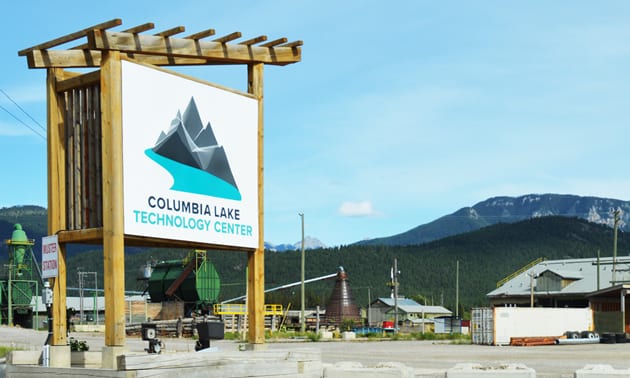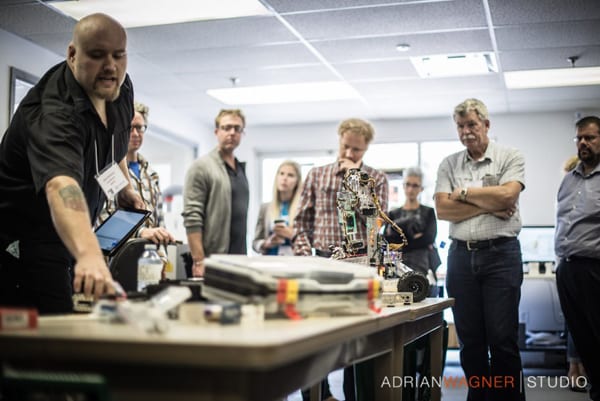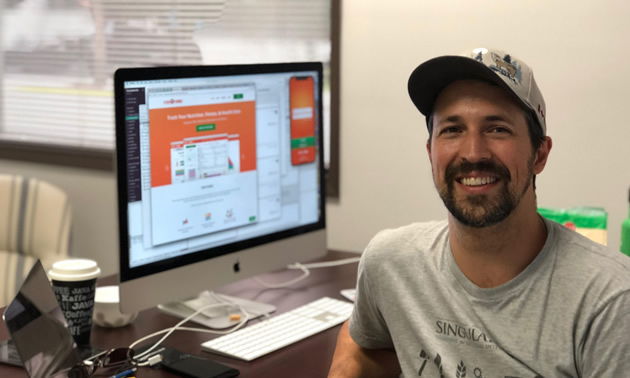If, when you think of the B.C. economy, you see images of towering trees as a bounty of lumber, and soaring mountains as endless stockpiles of ore, and all our coursing waterways as fuel for turbines, you’re not alone. Since becoming a country in 1867, Canada has built itself upon the trade of natural resources. These industries cemented our national identity and made us who we are — people shaped by the landscape. The trick is, we in turn dramatically reshaped that landscape, and wedged ourselves into an economic corner.
In 1923, Canadian economists Harold Adams Innis and W.A. Mackintosh wrote their Staples Thesis. To this day we’re still trying to escape the paradigm it puts forth. The gist of which is that we Canadians never got over our colonial hangover. In the beginning, we always saved the best lumber and pelts to ship back to the mother country. When we became independent, we continued to do the same, we just asked money for it now. In turn, we became a supply nation, and have had a hard time wrapping our heads around other economic practices than selling raw resources — often buying back finished products from other places. It’s left our economy prone to trade winds and the boom-and-bust cycle of fickle international commodity markets.
In a funny way, though, that damp enthusiasm towards building things at home put us ahead of the curve. In the last two decades, most manufacturing jobs from developed nations have either been outsourced to other countries, or the humans behind them got replaced by microchips. Now, almost 100 years after the Staples Thesis, Canada is finally diversifying, and focusing on the right thing at the right time — those microchips. Tech, that is.
The Global Startup Ecosystem Report currently rates Vancouver as the best place in Canada to start a tech business, and 15th overall in the world. All of which brings an undeniable gravity to the province as a whole. According to the most recent statistics, tech now accounts for more GDP than all the resource-extraction industries combined. That means more than 100,000 jobs, and growing. And now you can work in Vancouver without actually living there. Or in New York City, for that matter. The growing swell of tech-enabled mobile companies and workers in B.C. and beyond has created an incredible spill over into rural regions like the Kootenays, whose attractive lifestyle, affordable towns, and fibre optic internet are inviting the tech industry with open arms.
“Communities like this, we believe, are the future of the technology industry,” says Lorri Fehr, CEO of the Columbia Lake Technology Center (CLTC), a data-server factory that recently set up shop in the Canal Flats, a former mill town in the East Kootenay. “You can’t survive and you can’t grow when you have a situation like Vancouver is in where you can’t afford to live there.”
 Fehr, whose company aims to eventually employ up to 100 people or more, points out what a lot of businesses and entrepreneurs are feeling these days: Vancouver’s nearly impossible real-estate crunch. The Swiss bank UBS rates the city as the fourth biggest real-estate bubble on the planet. The CLTC, which builds data servers into shipping containers to both host on site and sell around the world, is conversely buying land and building property to sell to its employees at controlled rates that eschew the wild values of boom markets. They can do this because, in the Kootenays, there’s still room to grow — lots of it.
Fehr, whose company aims to eventually employ up to 100 people or more, points out what a lot of businesses and entrepreneurs are feeling these days: Vancouver’s nearly impossible real-estate crunch. The Swiss bank UBS rates the city as the fourth biggest real-estate bubble on the planet. The CLTC, which builds data servers into shipping containers to both host on site and sell around the world, is conversely buying land and building property to sell to its employees at controlled rates that eschew the wild values of boom markets. They can do this because, in the Kootenays, there’s still room to grow — lots of it.
But it’s not just the CLTC and multi-million-dollar enterprises offering an alternative to the Coastal pressure cooker, small-business owners like Peter LeCouffe are also leveraging tech to land exactly where they want to. Peter runs Harrier Aerial Surveys, which uses drones to collect hundreds of thousands of times more data points in 15 minutes than traditional surveying can do in a day. It also lets him live in serene Kaslo, on the shore of Kootenay Lake, where he’s renovating an old farm in his spare time, and just beginning family. In Fernie, Kevin Urbanski’s company, Rithmik Solutions Inc., uses A.I. to analyze data on mining equipment and get out ahead of repair costs. “There’s a lot of low-hanging fruit in saving money just using today’s visualization techniques on raw data,” he says, in between lunchtime laps on his mountain bike, right out his office door.
T he story of the Kootenays’ tech scene, whether you’re a startup, a transplant or a solopreneur, always includes the same notes: affordability, lifestyle, and connection. The last few years, the Kootenays have become connected by more than just broadband. Tech champions like Nelson’s Brad Pommen of SMRT1 Technologies is one of several people bringing together an attractive community of tech workers to support each other and advocate for the industry in places you can ski and rock climb right from your backyard. The Nelson Tech Club that Brad started only a few years ago now has over 500 members. It’s one of the key indicators of the Kootenay’s own growing tech ecosystem.
he story of the Kootenays’ tech scene, whether you’re a startup, a transplant or a solopreneur, always includes the same notes: affordability, lifestyle, and connection. The last few years, the Kootenays have become connected by more than just broadband. Tech champions like Nelson’s Brad Pommen of SMRT1 Technologies is one of several people bringing together an attractive community of tech workers to support each other and advocate for the industry in places you can ski and rock climb right from your backyard. The Nelson Tech Club that Brad started only a few years ago now has over 500 members. It’s one of the key indicators of the Kootenay’s own growing tech ecosystem.
The frequent meetups these community clubs put on, which have connected over a dozen towns, have played a big role in cross-pollinating the industry, and bringing collaborations into the fold that bolster all sectors. Nowhere is this more apparent than in Trail, home to Metal Tech Alley. The century of industry from Trail’s lead-zinc smelter has created a buzzing locus of materials and ingenuity. From this place came Don Freschi, a former executive director of the Kootenay Association for Science and Technology (KAST) and current CEO of Fenix Advanced Materials. After selling his previous company, Firebird Technologies Inc., which made and continues to make semiconductors in Trail as 5N Plus, Don decided to open a new company that repurposes the by-products from the smelter to make new ultra-high-purity metals that can be used in machines like solar panels and x-ray machines. His big push now is luring other related businesses that can build off each other.
“How we see it is vertical integration of market,” he explains. “So if they’re making semiconductors here, why aren’t they making the solar panels here, since they have the metals? All these industries that are using our products, why wouldn’t they set up in our area? That’s the end goal.”
There are, in fact, a dearth of similarly avant-garde businesses in this same corridor, like i4C, and Advanced Biocarbon 3D, to name but a few. It’s why MIDAS Fab Lab is strategically located here, too. MIDAS is a prototyping fabrication lab funded through KAST that allows folks like Brad Pommen to refine their designs (smart interface vending machines, in his case) before sending them into production.
The support system for tech in the Kootenays is fuelled by four key organizations: KAST, the Columbia Basin Trust (CBT), Community Futures, and Startup Canada — with local chapters of the latter in Revelstoke and Nelson. While all these organizations work together in some capacity or other, and have subsidiary programs within them, here’s the rough break down: call KAST to get oriented in the area, access acceleration programs, find money and resources, and network. Call CBT if you want to train for a particular industry, or fund a specific project. Community Futures can equally train you up, or finance your business. Startup Canada (or Startup Revelstoke or Nelson), is a business seeding organization that provides free coaching and other essential services to new businesses. Tap any one, and you’ll no doubt route through all the others in some capacity, and even dip into sub-programs administered by each.
The other major thing gelling the tech com munity is the growing abundance of co-working spaces. These serve as community hubs, places to network, attend events, and get out of your house to do the straight-up work it takes to get your business off the ground. Aaron Davidson of Cronometer can attest to this first hand. He moved to Revelstoke as a ski bum with a hobby project he was developing for fun. From the Revelstoke Mountain CoLab, he grew his nutrition-tracking app to the point 2 million people have downloaded it, and he now employs 19 people in his own office. Growth came stunningly fast to Cronometer, but Aaron still used Community Futures to help get the staff he needed in the start. He also cites city of Revelstoke’s two-year tech strategy as a major factor in his business thriving, and other tech businesses setting up in town.
munity is the growing abundance of co-working spaces. These serve as community hubs, places to network, attend events, and get out of your house to do the straight-up work it takes to get your business off the ground. Aaron Davidson of Cronometer can attest to this first hand. He moved to Revelstoke as a ski bum with a hobby project he was developing for fun. From the Revelstoke Mountain CoLab, he grew his nutrition-tracking app to the point 2 million people have downloaded it, and he now employs 19 people in his own office. Growth came stunningly fast to Cronometer, but Aaron still used Community Futures to help get the staff he needed in the start. He also cites city of Revelstoke’s two-year tech strategy as a major factor in his business thriving, and other tech businesses setting up in town.
More than anything, the appeal of the Kootenays lies in its enthusiasm and openness. Maybe in Canada we’re always going to live in some form of a staples economy, but at least we’re now recognizing that people and ideas are our most valuable resources.
